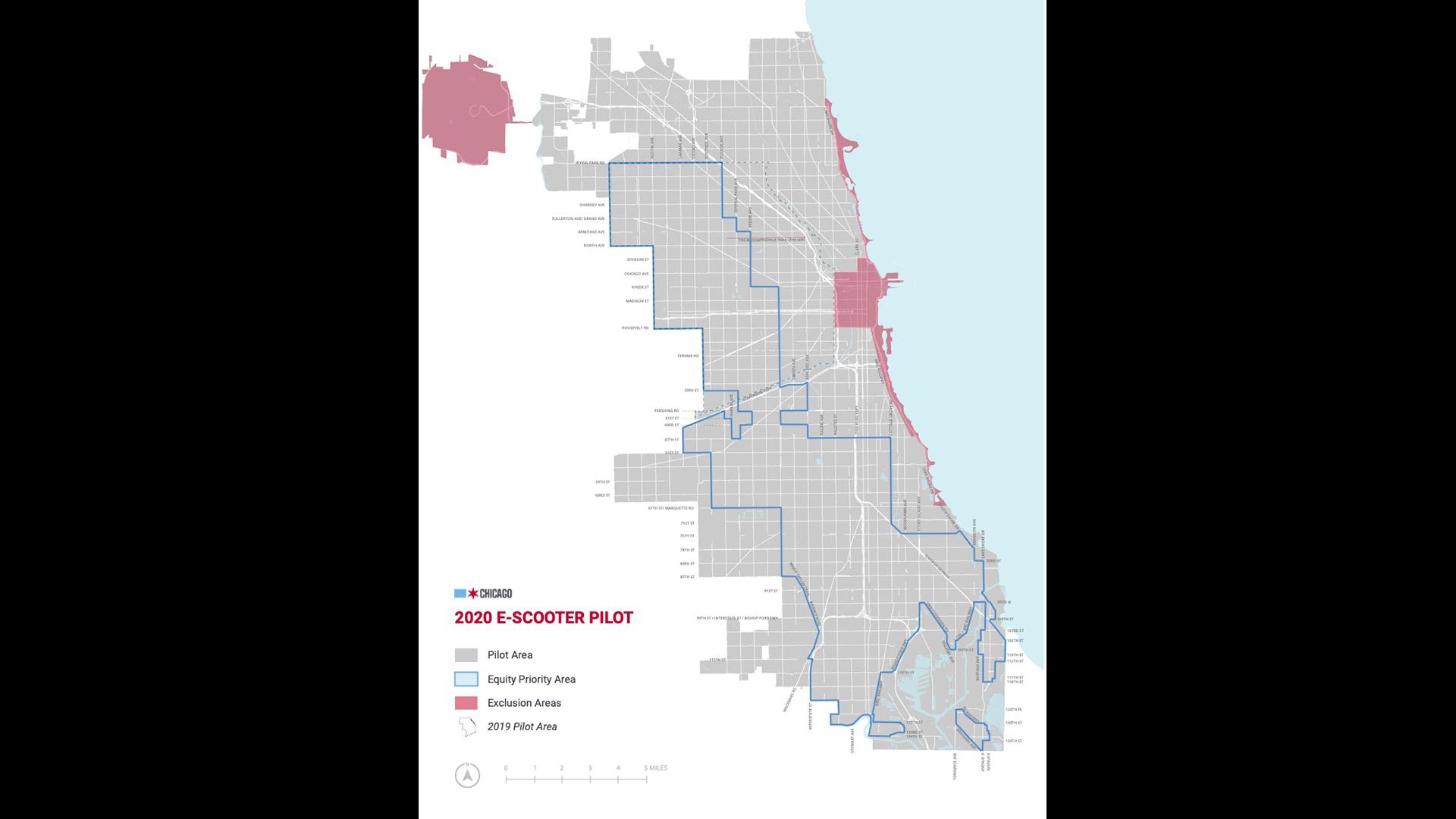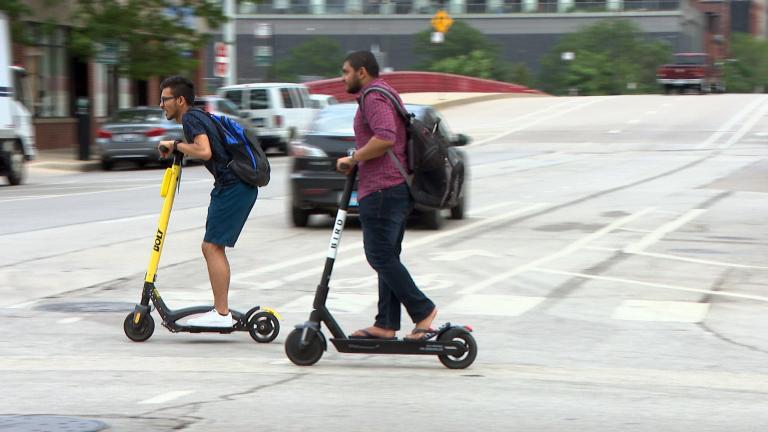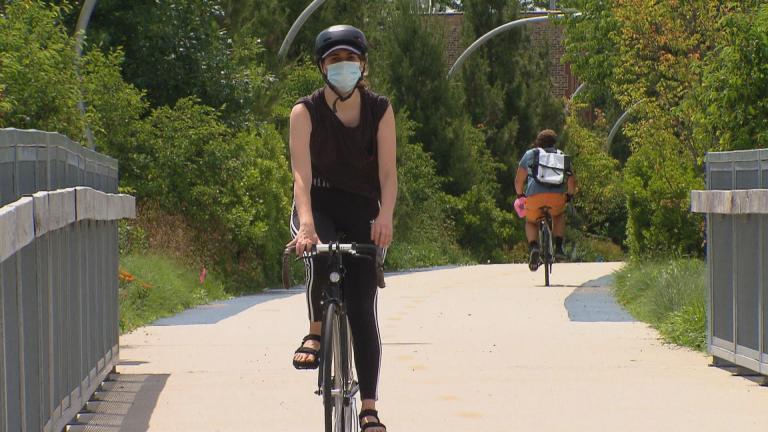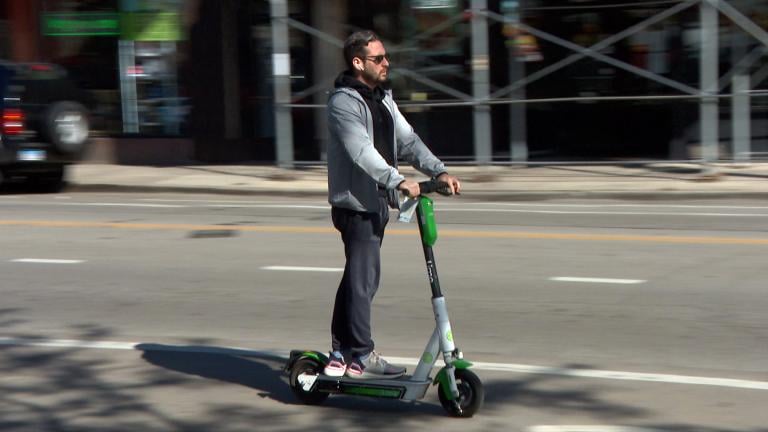Video: A “Chicago Tonight” update on scooters with Courtney Cobbs, assistant editor at Streetsblog Chicago, a nonprofit transportation news site.
Scooters will return to Chicago’s streets this summer as part of a second pilot program despite the coronavirus pandemic and an initial run that ended with “mixed results,” city officials announced.
City officials will allow three companies to scatter 10,000 scooters across much of the city — four times as many allowed during the summer of 2019 — but the scooters will not be allowed downtown or along the lakefront or 606 trails, according to the city’s rules.
The nine companies that participated in the first pilot program, including Veo will be invited to apply to participate in the second test run by June 25, in an effort to allow the two-wheelers to begin zipping down Chicago’s streets by the end of July or early August, officials said.
A 10th company that participated in last year’s company, Jump, was sold by Uber to Lime in May.
At least half of the 3,333 scooters from each firm must be docked on the city’s South and West sides, according to the city’s rules.
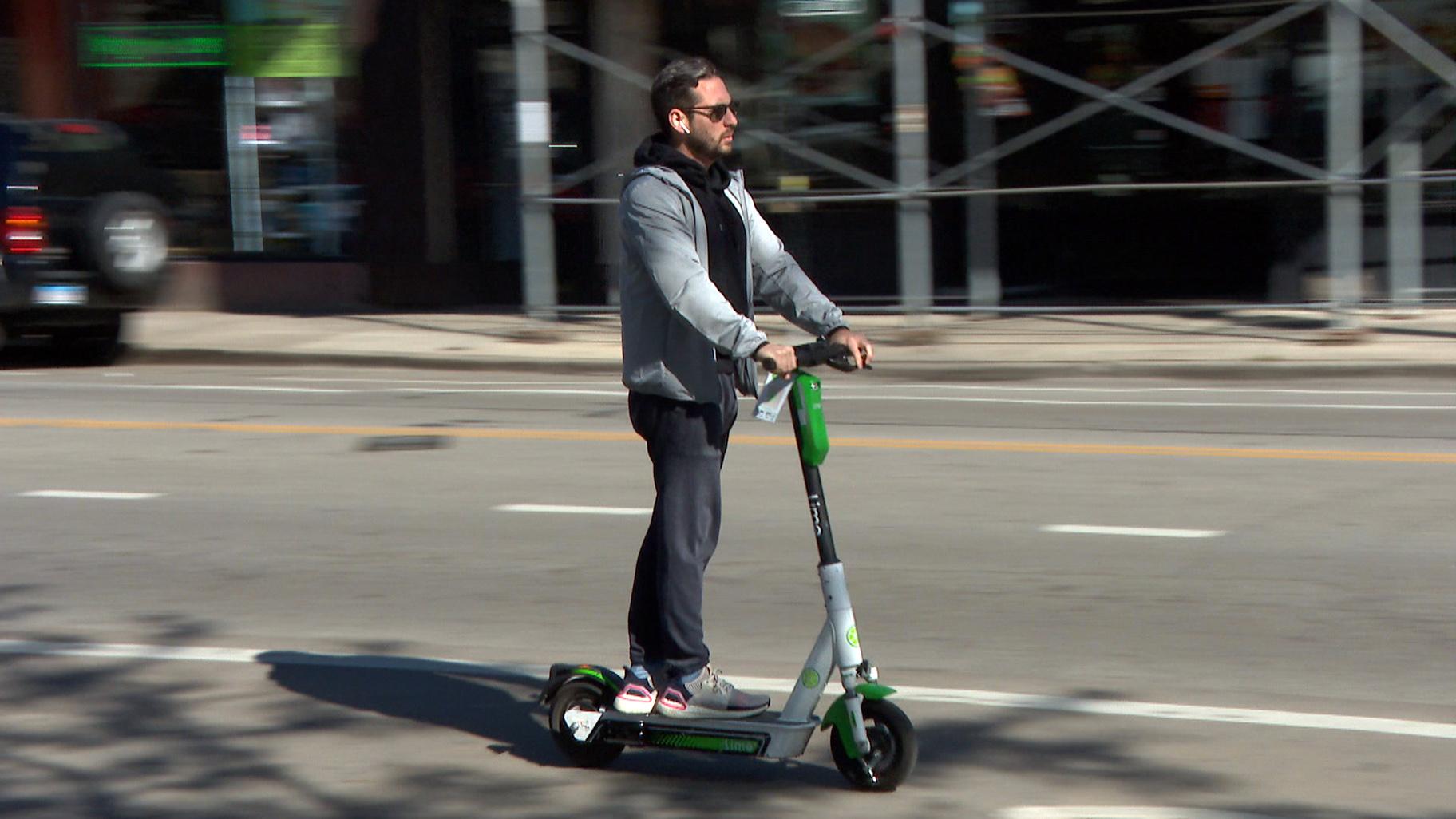 (WTTW News)
(WTTW News)
Companies must allow their scooters to be locked to poles or other parts of the streetscape to get it out of the public way as part of the second pilot program. After the first test run, aldermen repeatedly complained to city officials about riders dropping the scooters in the middle of sidewalks when their ride ended, causing a hazard.
Approximately 820,000 rides were taken during the pilot program that ran from June to October on the West and Northwest sides of the city, according to the final evaluation of the pilot program from the city and the Center for Neighborhood Technology.
Nearly all of the companies were cited for infractions during the first pilot program, officials said.
City officials designed the second pilot program to determine whether the two-wheelers would give commuters an environmentally friendly option to reach buses, trains and Divvy bicycles and reduce car trips.
To reduce the chance that scooters will spread the coronavirus, companies will need to clean the scooters each time their staff comes in contact with them, and riders will be encouraged to wear gloves and clean their hands with sanitizer or soap after each use. Helmets will be encouraged, but not required, and companies will have to educate riders on safety issues.
The scooters will be required to be docked between 10 p.m. and 5 a.m., and are banned from the entire central business district, bounded by Chicago Avenue on the north, Roosevelt Road on the south, Halsted Street on the west, with another western boundary on Clark Street between Chicago Avenue and Division Street.
Last year, scooter rentals started at $1 plus 15 cents a minute. The vendors selected by the city will set the prices, officials said.
But the results of the 2019 pilot were inconclusive on that central question, according to the evaluation.
Scooter ridership was concentrated in the West Loop and along the CTA Blue Line, but it is unclear whether scooter trips supplemented train or bus trips. Approximately 34% of online survey respondents told officials they used scooters to go to or from public transit.
The city’s evaluation of the first pilot run of the scooters also found:
—192 people were injured while riding scooters during the pilot program.
—Most rides took place during the evening rush period on weekdays and between 3 and 4 p.m. on Saturday and Sunday.
Contact Heather Cherone: @HeatherCherone | (773) 569-1863 | [email protected]
Note: This story was originally published Saturday, June 13, 2020. It has been updated to include our conversation with Courtney Cobbs.

